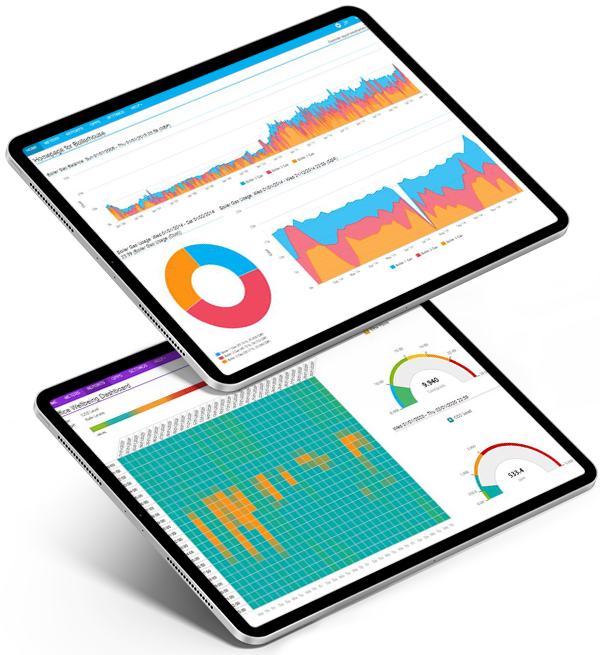Achieving net zero reduction targets and supporting the Net Zero strategy is a complex and challenging goal, but it is considered essential if we are to avoid the worst impacts of climate change.
The concept of net zero is now being adopted by countries, corporations, and individuals as a way to combat climate change and reduce the impact of human activities on the environment. To achieve net zero strategy, individuals and organisations will need to play a proactive role. Access to realistic replacement technologies and a range of data and monitoring tools will help achieve this.
The goal of net zero is to limit the amount of carbon dioxide and other greenhouse gases released into the atmosphere. Ultimately to reach a state where the levels of these gases in the atmosphere remain stable.
By using energy management software, organisations can track their energy usage and carbon emissions. Furthermore, they can then make the changes to their operations that will help them reach their net-zero targets.
What is Net Zero Carbon Strategy?
Net zero is where an entity’s total carbon emissions are equal to the amount of carbon it removes from the atmosphere.
This will typically be achieved by a variety of means, such as:
- Changes to working practices
- A shift to renewable energy
- Decreased consumption
- Energy efficiency
- And in some cases activities such as carbon capture and storage or reforestation.
Accordingly, the entity has a balanced carbon budget, where its emissions are offset by the amount of carbon removed from the atmosphere.
Net zero represents a major shift in the way we think about energy consumption and emissions, as it requires not only reducing emissions but additionally actively removing carbon from the atmosphere.
This can be achieved through various means, such as:
- Investing in renewable energy sources
- Implementing energy-efficient technologies
- Engaging in carbon capture and storage or reforestation projects.
The ultimate goal of net zero is to create a sustainable, low-carbon future that minimizes the impact of human activities on the environment. Therefore reducing the risks associated with climate change.
Thinking globally, acting locally
Because climate change is a global issue, it has demanded a global response.
The UN has set a target of limiting global warming to well below 2 degrees Celsius above pre-industrial levels and pursuing efforts to limit the temperature increase to 1.5 degrees Celsius. To achieve this, it is widely recognized that global greenhouse gas emissions need to reach net zero in the second half of this century.
The UN Framework Convention on Climate Change (UNFCCC) is a key platform for international cooperation on climate action, including efforts to reach net zero. The UNFCCC also hosts the annual Conference of the Parties (COP) which is a key event where countries come together to negotiate and agree on international climate action.
The UK Net Zero Strategy
The UK has set an ambitious target to achieve net zero greenhouse gas emissions by 2050. The target is legally binding under the Climate Change Act 2008. The target has made the UK one of the first major economies to set a goal of achieving net zero.
The UK’s net zero carbon strategy calls for greater investment in renewable energy sources, such as wind and solar power, as well as improving energy efficiency in homes, businesses, and across industry. By setting a legally binding target to reach net zero, the UK has demonstrated its commitment to addressing the challenges of climate change and to leading the global effort to reach a low-carbon future.
Energy monitoring software is one of the tools that can help the UK to track its long term progress towards this goal. Data-driven decisions can be made to support its transition to a low-carbon economy.
What role can energy monitoring software play?
With the growing focus on achieving net-zero emissions, the need for effective energy management systems has never been more pressing. This software helps track, monitor and reduce energy usage, making it an essential tool in the quest to reach net-zero targets. Energy monitoring software can help a company develop and support a realistic net-zero carbon strategy
Energy monitoring software provides companies with detailed data on their energy usage and emissions. This can help them to identify areas where they can improve energy efficiency. Making it easier to identify energy waste and then take steps to address it.
In energy intensive industries such as manufacturing and food processing, significant reductions can be achieved by ensuring that machinery and equipment are working at an optimal level.
Innovative energy monitoring and management software can help companies track their progress towards their reduction targets.
Companies can easily identify where they’re being successful and where more effort or a different approach might be needed. As well as assisting companies in measuring the amount of non-recyclable waste they produce.
Energy management software provides:
- Valuable data to support the development of initiatives that support the company’s net-zero carbon strategy.
- An empowering data-driven approach to energy management.
- Organisations with a transparent and accurate picture of their energy usage and emissions.
Empowering your net-zero carbon strategy with Carbon Desktop
Carbon Desktop is a powerful energy monitoring platform, it helps companies:
- With the tools they need to reach carbon reduction targets.
- Track your energy use across utilities.
- With efficiency savings.
- Develop and implement new strategies to reduce energy usage and track their progress.
We will work closely with you in your drive to achieve net zero. All the guidance and support you need will be available to you. We are always on-hand to answer your questions and deal with any issues you may be facing.
Our software can help you take control of the rising energy costs across the manufacturing and industrial sector.
To find out more, book your free demonstration today.





